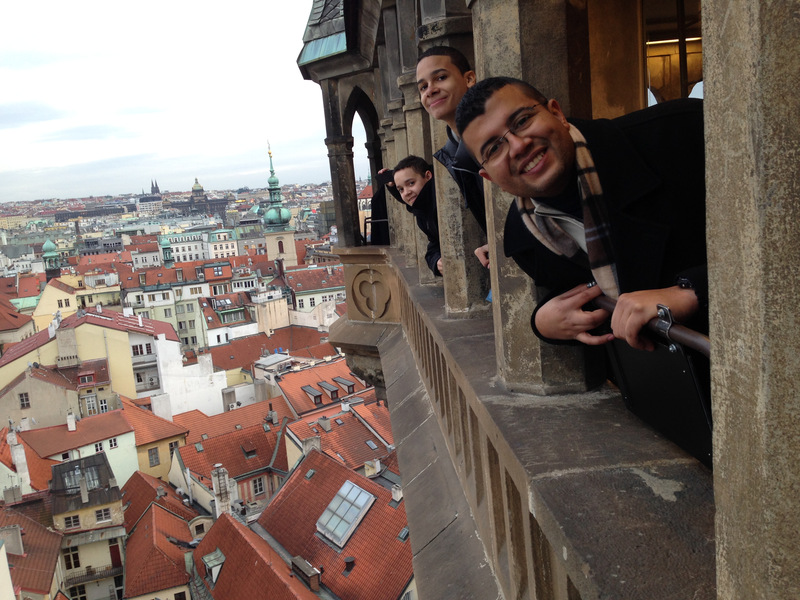 Francis De Castro has a lot titles; Head of the foreign language department at Cardinal Hayes High School, check. Spanish teacher in the Bronx, NY, check. EF veteran traveler, triple check. He’s led five tours, but really, he has a whopping total of 10 tours under his belt. But it’s not about the glory for Francis—for him, tours are a way to help students of diverse economic and ethnic backgrounds explore the world and walk away with new perspectives (and sometimes souvenirs).
Francis De Castro has a lot titles; Head of the foreign language department at Cardinal Hayes High School, check. Spanish teacher in the Bronx, NY, check. EF veteran traveler, triple check. He’s led five tours, but really, he has a whopping total of 10 tours under his belt. But it’s not about the glory for Francis—for him, tours are a way to help students of diverse economic and ethnic backgrounds explore the world and walk away with new perspectives (and sometimes souvenirs).
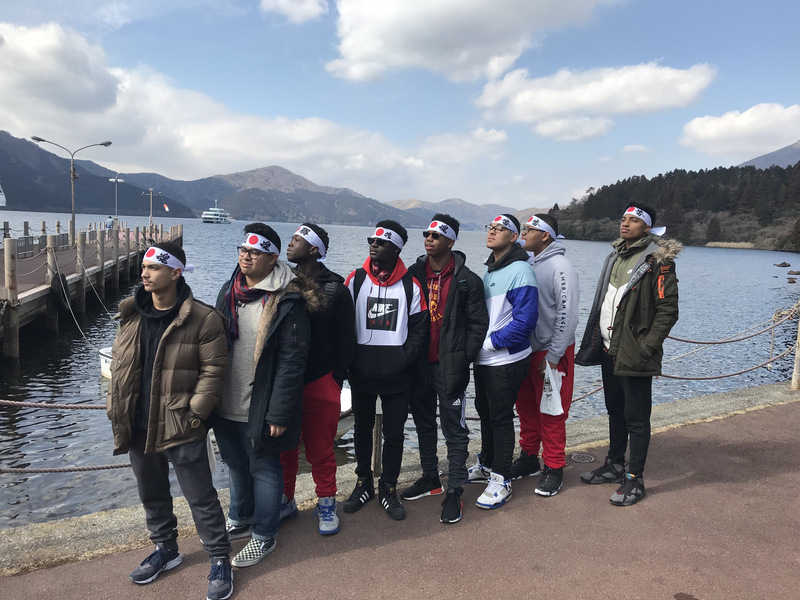
I had the opportunity to talk to Francis about his travels, his school, and his experiences with EF Tours.
What made you want to become a teacher?
When I started college, I didn’t know what I wanted to study. I was interested in law and in education. When it was time to decide, I thought, “Okay, I want to choose a job that won’t feel like work and one that makes me happy to wake up every morning.” After taking an education class and social teaching class, I realized I wouldn’t I have any doubts about becoming a teacher.
What do you like about being a teacher?
My students’ success motivates me; Seeing that a student is able to achieve their goals, get good grades, and are able to grow with my guidance keeps me going. I just love giving students the opportunity to travel outside the classroom and to see the world beyond New York City.
How did you hear about EF Tours?
My school has been traveling with EF Tours for a while now, way before I started leading tours. We needed another teacher to lead the trips; initially, it was another teacher who took the role, but he asked me to help him and that’s how I got started. Eventually, I took over the role. I’ve been leading tours ever since.
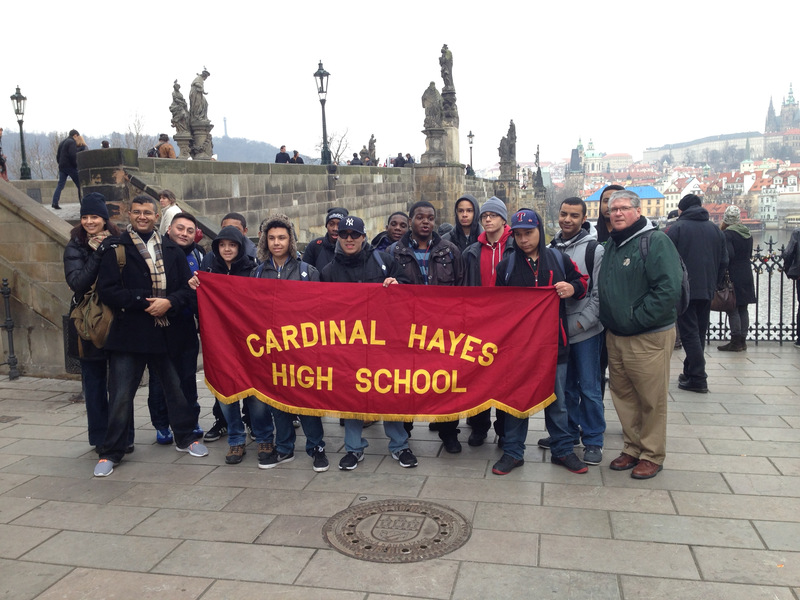
Francis spoke about his parent meetings and how he conducts them:
Are parent meetings second nature for you at this point?
It’s something that I’ve grown more and more comfortable with after each passing tour, but at the same time, there’s always something new to present. I always make sure to adapt the presentation to match the trip and destination that we are going to, that way parents have all the information that they need.
How do you differentiate your tour during parent meetings?
I have a teacher who helps me with my recruitment meetings and she always brings the food and drinks. It really helps to keep the parents relaxed during the meeting. What I like to do in my recruitment meeting is present a lot of information to the parents, including pictures and videos from our past tours. When we go on these trips, we try to capture as many pictures and videos as we can and put them on our website for undecided parents and students.
How do you help students go on tour?
We haven’t needed to fundraise for our tours yet, but we have had donations from the community. Until last year, we always had at least one of our students go on tour through donation. Our donors could be alumni or local professionals who want to donate something to the school. My advice for parents who are on the fence financially for a tour would be to find these opportunities or plan in advance, if possible. Your child may not be able to go this year, but they could save up for the following year’s tour. That’s why I like to decide where we’re going on our next tour as soon as possible. I always want to do what’s best for our students and do whatever to make sure they have a chance to travel at least once.
How do you support parents who don’t speak English?
It doesn’t always come up, but it has happened. What I usually do is have the hour-long parent meeting as normal, but ask parents at the end if anyone would like the information in Spanish. If so, I’ll present it again for them in Spanish. It’s not easy because it is a long day for me, but it is also part of the process, and it’s a sacrifice to make sure the message is understood by everyone.
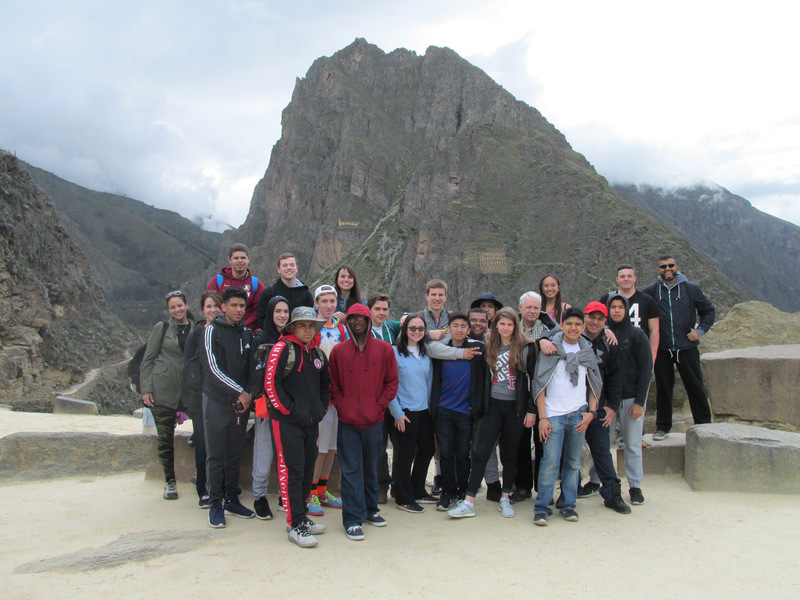
In this part of the interview, I talked to Francis about his trips with EF Tours:
Where have you taken your students? Where would you like to go next?
I always have all the trips that I’ve done for everyone to see on my blackboard. My first tour was in April of 2011 and we went to France and Spain. After that, we had the chance to visit Italy, Costa Rica, England, Germany, Poland, Czech Republic, Hungary, Greece, Peru, and Japan—all within an eight-year span. Soon, we’re going to Amsterdam, Holland, Belgium, France, and England. We have a Thailand tour confirmed for 2020, too.
Of all the places you’ve visited, which country stuck with you most?
Costa Rica is the most impressive place that I’ve been to. I know it’s weird because I’m from the Dominican Republic and it’s similar to Costa Rica, but the experience in Costa Rica was so much more, especially with the students. The students had the opportunity to whitewater raft, kayak, and explore a rainforest. For students who are from New York City, this is something very different for them. Japan was also amazing. It was very different from what we’re used to and experiencing such a different culture was wonderful for our students.
What kind of students do you take on your tour?
I work in an all-boys Catholic school called Cardinal Hayes High School in the Bronx, New York, which has more than a thousand students. We have a wide variety of students with a variety of economic situations who travel with us. We live in one of the poorest congressional districts in the United States, which makes it difficult for some students to travel.
Why do you do these tours?
Well, to be honest, it’s all about the opportunity to travel to those places and giving those experiences to my students. I have personally seen the changes that these students undergo on tour and how it opens their eyes to new places. I want to ignite curiosity in my students so that they’ll keep exploring the world.
What was something that surprised you in your travels?
I remember when we landed in Japan. It was a destination that we tried doing for years and when we finally arrived it was just an experience unlike any other. We started planning the tour two years in advance and finally were able to get enough interest to do it. When we arrived, and saw everything in Japanese, well, that was a huge culture shock for my students and me.
How have you seen students change on tour?
Their eyes begin to open to the world around them. They’re exposed to new cultures and this drives them to start thinking how they can explore more. Therefore, when they come back, they start asking those questions of how can they can learn and experience even more.
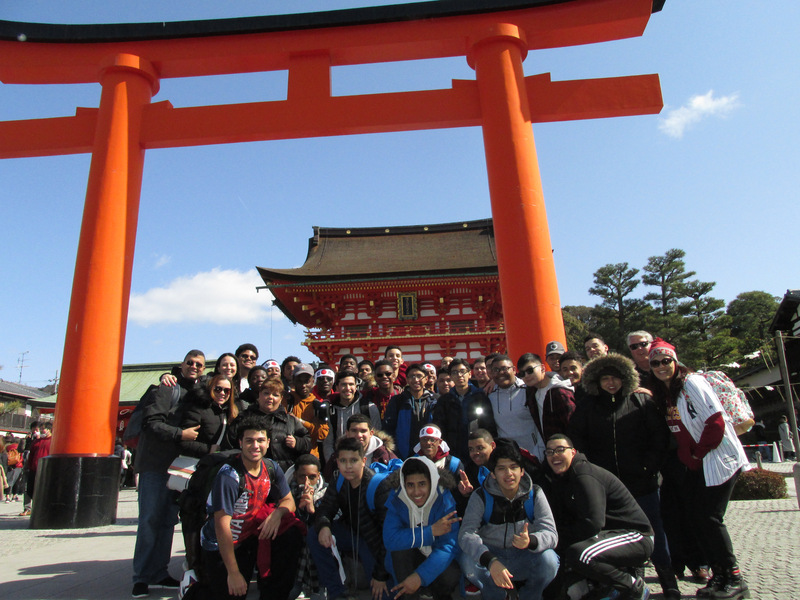
We can all learn a thing or two from Francis; Whether that’s how to motivate students to explore beyond their backyard, or just how to navigate Costa Rica.
Check back soon for the video of our interview!
¿Quieres leer esta entrevista en español? Lo puedes encontrar aquí.
Related articles
